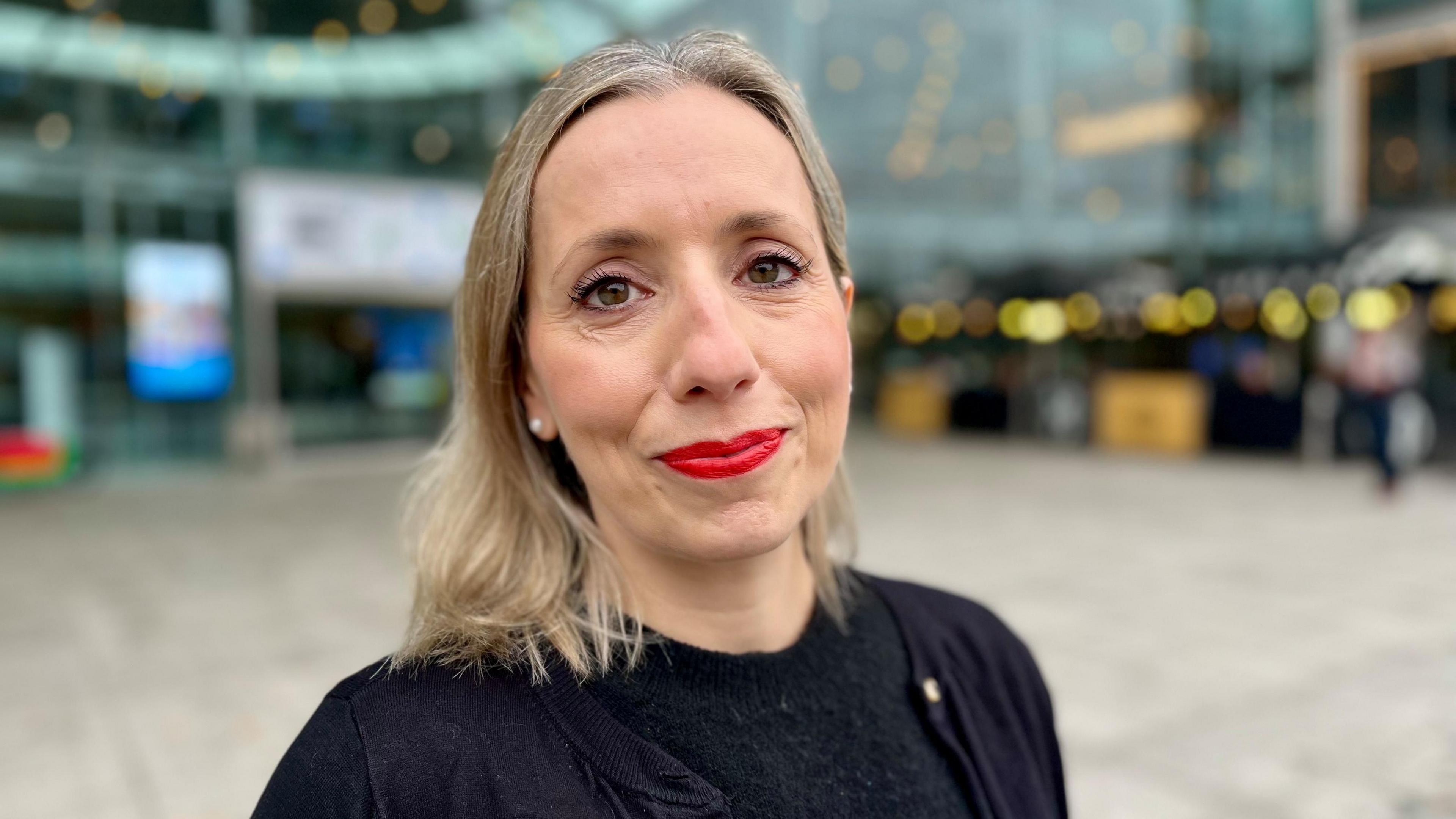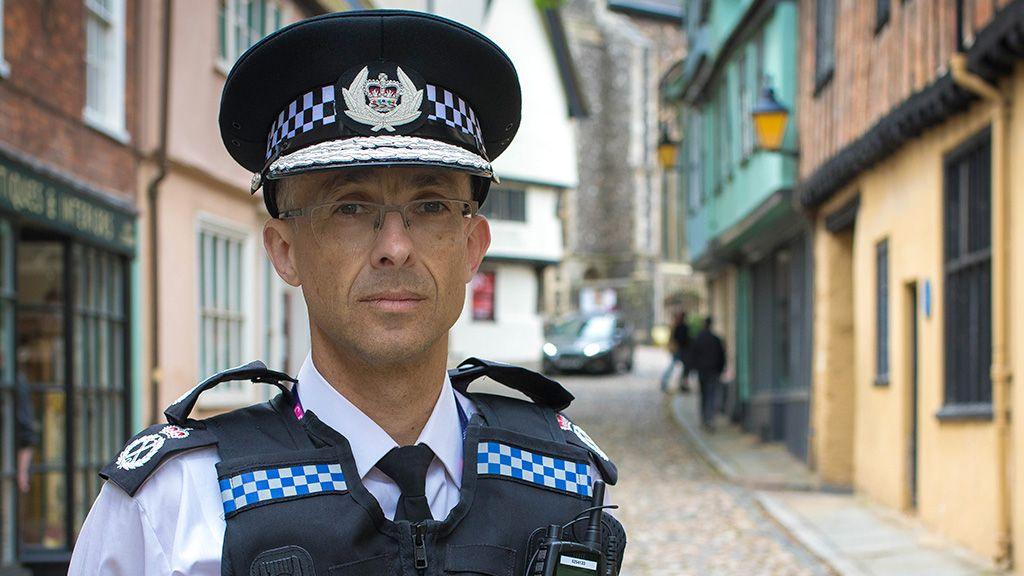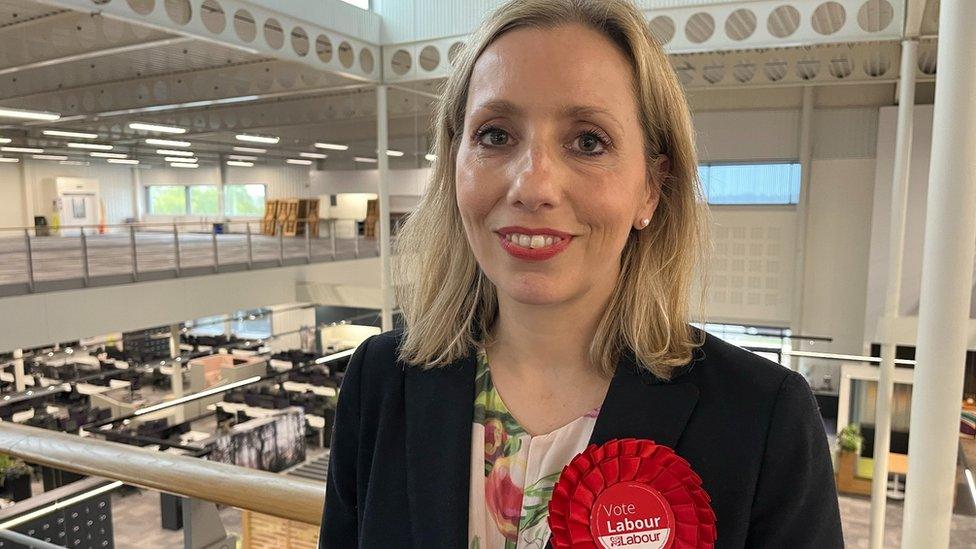Five takeaways from Norfolk's PCC in the hot seat

Sarah Taylor is the first woman to take on the role of Norfolk's Police and Crime Commissioner
- Published
A county's police and crime commissioner said she hoped her force would receive more funding from the government following its Budget announcement on 30 October.
Sarah Taylor, Norfolk's Police and Crime Commissioner, made history when she was elected in May as the first woman and Labour candidate to take up the role in the county.
She won 52,445 votes, beating the incumbent Conservative candidate, Giles Orpen-Smellie.
The commissioner spoke to BBC Radio Norfolk’s breakfast programme on Wednesday.
1. Norfolk Police is ‘desperate’ for more funding
As the Labour government prepares to announce its first Budget on 30 October, Taylor said she was keen to receive news of more funding for Norfolk Police.
Despite being a Labour police and crime commissioner, Taylor said she had heard "no whispers" from Westminster about what could be in the plan for her force.
“When you see how little funding we have now compared with 2010, it’s absolutely eye-watering,” she said.
“We are desperate to hear the Budget. We want to know what the government is going to do.
“We really want to understand what that funding looks like and what we can do then.”
2. Early release of prisoners
On Tuesday, the government announced it would be releasing 1,100 more prisoners early, as part of its emergency plan to ease overcrowding in jails in England and Wales.
Taylor said the move would give the system the much-needed "breathing space".
“I'm not sure what other choice they have,” she said. “That's because everything is bursting at the seams.
“To say that I support it is possibly a bit strong. I think that the number of options is extremely limited.
“We cannot build more prisons out there at the roll of the dice. We have to find solutions quickly and this provides breathing space.”
3. 'Two-tier policing'
Over the summer, hundreds of people were arrested in connection with riots and anti-immigration protests across the UK.
Entrepreneur Elon Musk, the owner of X (formerly Twitter) claimed the police force in Birmingham was guilty of "two-tier policing".
Two-tier policing is a term used to describe the idea that some behaviour, such as protests and demonstrations, were dealt with more harshly than others.
In Norwich, up to 400 people took part in an anti-racism protest on 10 August, following violent disturbances across the country.
Taylor said she would protect the right to peaceful protest, but not disorder.
“The right of protest is a right and it’s one I support," she said. "People are welcome to do that.
"Being able to riot is absolutely a criminal activity and so it should be."
She said she had spent a long time looking at the behaviour in Norfolk and was satisfied that two-tier policing does not happen.
"Luckily we didn’t have the rioting in Norfolk that other places saw and that is great," she said.
"It speaks to, bluntly, the sort of people that live in Norfolk, which is wonderful and long may it continue."
4. Scammers
Taylor said she had been talking to her office to see what they can do to make people more aware of scams and online fraud.
It comes as a man from Norfolk lost files, business records and all his online photos after fraudsters took control of his phone.
Taylor said the City of London Police was the main force to deal with online fraud, but she was keen to see more done by the local force.
“We all know people that have been affected by this now,” she said.
“It really should not be seen as normal but the fact that so many people have been affected by it, it really needs to change.
“Ultimately people have got to be brought to justice on this and they are but I would agree that more needs to be done."
5. Get in touch
Since taking up her role, Taylor said her office had seen an increase in the amount of correspondence it received.
She said she was pleased people were engaging with her and her new role.
“It’s early days but the signs are there that people have a better understanding of what this role is and what it can do for them,” she said.
“That is music to my ears and I want more of it because I do believe that this role should be a powerful enabler of change.
“Not power for power's sake.”
Follow Norfolk news on BBC Sounds, Facebook, external, Instagram, external and X, external.
Related topics
More stories like this
- Published14 August 2024

- Published7 May 2024
